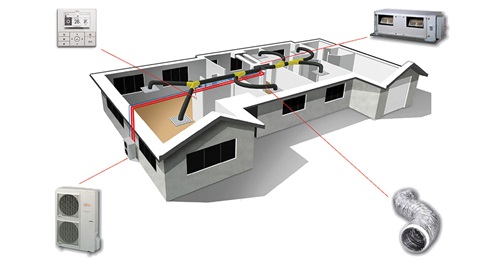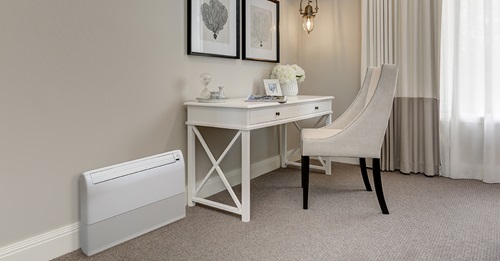Air Conditioning Facts and Myths You Need to Know

There are many myths out there about air conditioning. Here we debunk 5 common misconceptions and set the record straight on air conditioning facts and myths. This article dispels air conditioner myths using technical insight into the performance, efficiency, installation and maintenance of residential air conditioners.
MYTH 1: Most air conditioners pull air from the outside
FACT: Indoor units recycle the air from inside and do not pull air from outside unless it is a commercial air conditioning system. The indoor unit of the air conditioner typically features a return air intake grille that has a filter to catch dust and other debris whilst still allowing air to pass through. The air then passes over refrigerant-filled copper coils which absorb excess heat from the air. The now cooled air is pushed back into the room. The outdoor unit fan then takes the heat out of the coils and the whole process starts again.
MYTH 2: A bigger air conditioning system is better
FACT: When looking for an air conditioner, you may find yourself asking ‘is it better to get a bigger air conditioner?’ The best practice is to make sure a particular air conditioning system is suitable for the size of your home or designated room before purchasing. An oversized unit, even if it has a high-efficiency rating, may consume more power, but can cycle on/off more frequently causing faster wear and tear on the system. When shopping for a new system take room measurements with you, so the specialist can advise what’s the best fit for your requirements.
MYTH 3: A low thermostat setting cools the home faster
FACT: Selecting the coldest setting will not cool the home faster and can use unnecessary power for minimal comfort gains. Fujitsu recommends setting the air conditioner above 23 degrees Celsius to create a comfortable environment whilst minimising energy consumption. Instead, consider the characteristics of your home, such as the level of insulation and number of light sources, to operate your air conditioner efficiently and anticipate temperature changes. View more tips on effectively using your Fujitsu General air conditioner in our guide to running your air conditioner efficiently.
MYTH 4: Air conditioners only cool
FACT: Installing a reverse cycle air conditioning system enables you to cool and heat the home. Compared to electric heaters, an air conditioner won’t overheat a room as it distributes air evenly around a room and responds to the thermostat to control the set temperature and create a comfortable environment at any time of the year.
MYTH 5: The location of your wall mounted air conditioner doesn’t impact performance
FACT: Where you have wall mounted air conditioners installed in a room can significantly impact thermostat performance and air distribution. It is recommended that the indoor unit be located away from obstructions, direct sunlight, light fixtures, and other electrical appliances, as this can affect accurate temperature sensing and delivery of the conditioned air.
Additional air conditioning facts and myths
Is it more efficient to leave the air conditioning on?
Air conditioner efficiency depends on various factors, including the unit itself, the outside temperature and the level of insulation in the building. As a general rule, it is best to switch air conditioners off when the room is not occupied.
However, on a very hot day, it can be beneficial to switch the air conditioner on and run it at a higher, yet still comfortable, temperature. Doing so will ensure your home stays cool and help to reduce energy consumption.
You can further reduce the energy used to run your air conditioner by using the modern programmable technology that Fujitsu General air conditioners are equipped with, including timed operation modes as well with the anywAiR technology Wi-Fi adaptor II .
Is air conditioning bad for you?
Fujitsu General air conditioning systems can help improve the air quality inside your home by filtering out pollutants, controlling humidity and heating or cooling the room to the desired temperature.
Poor maintenance of air conditioning systems, such as prolonging cleaning or replacing the filter and neglecting maintenance from a licensed technician, can result in reduced performance. Ensure you regularly check your unit visually and have it inspected by a Fujitsu General Assist technician annually to mitigate health risks.
Air conditioner myths have stemmed from long-held misunderstandings about how the systems operate. Modern units, such as Fujitsu General’s wall mounted air conditioners and ducted systems, are able to both heat and cool your home quickly and efficiently, especially when they are maintained regularly.
Contact Fujitsu General today for more information on our wide range of air conditioning systems.

.tmb-tmb420.jpg?sfvrsn=5c4be2e1_1)


